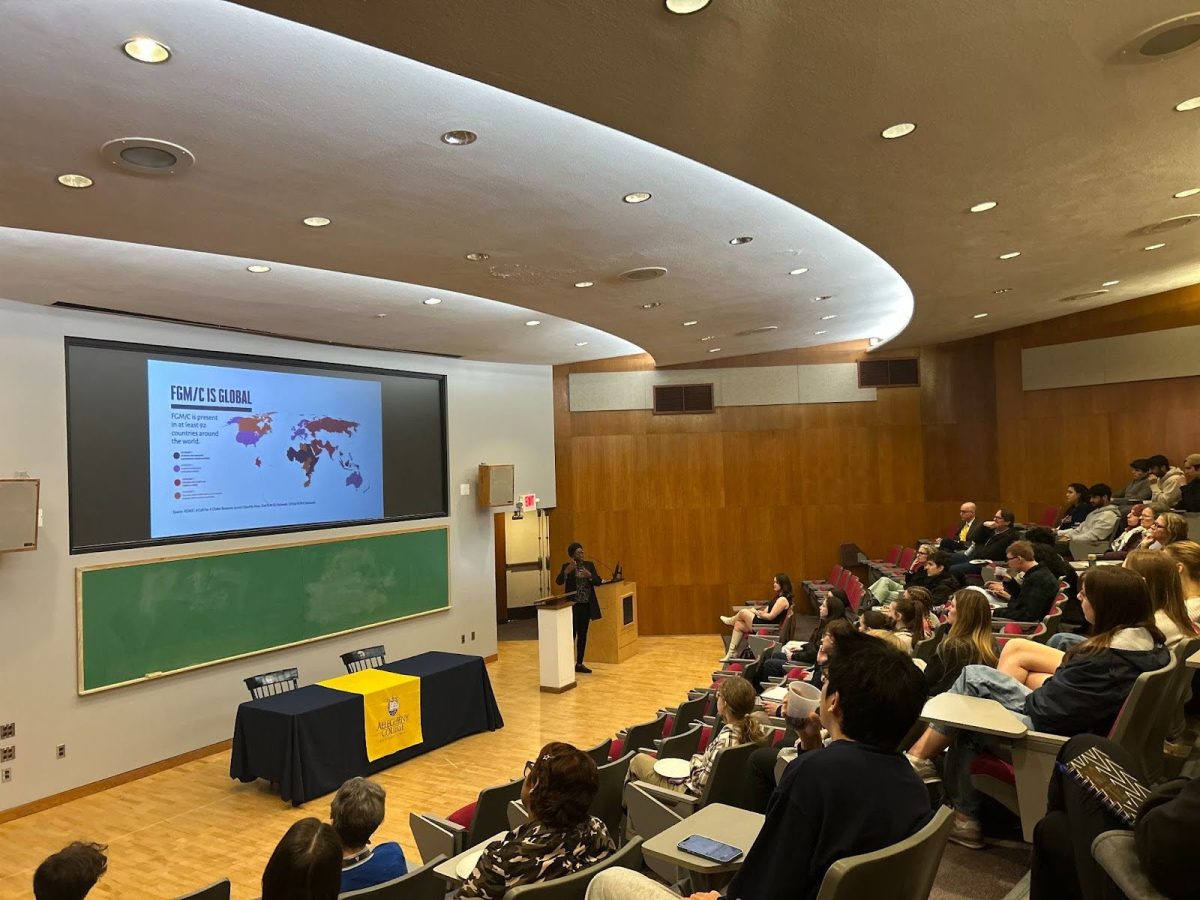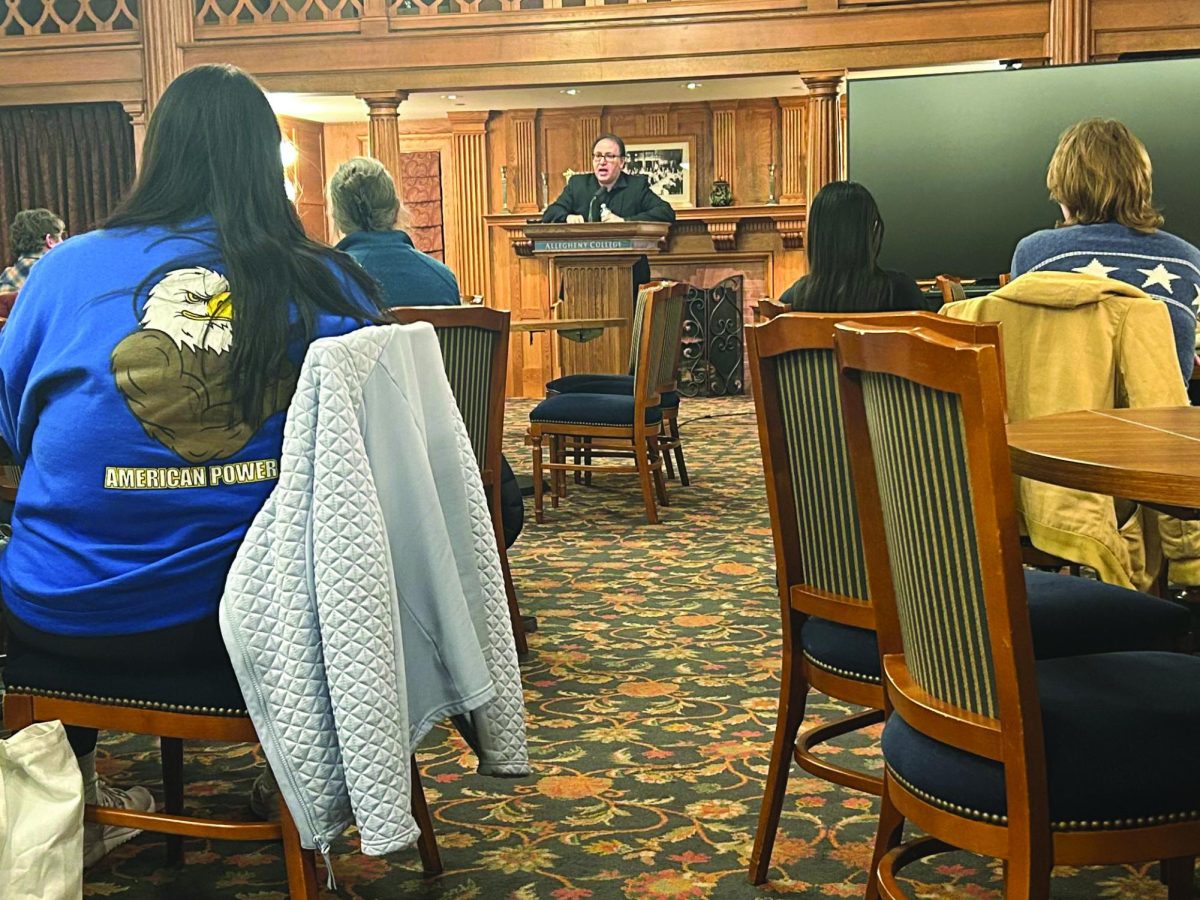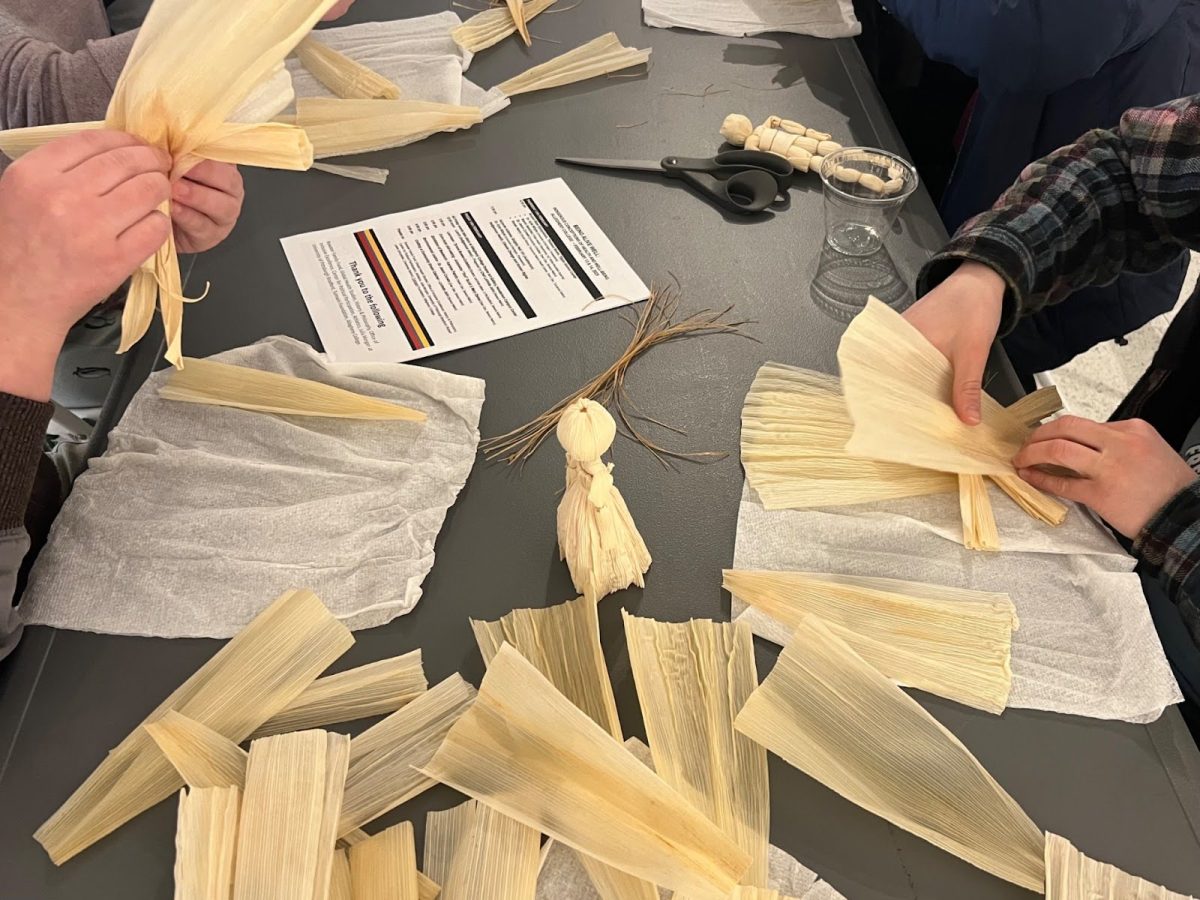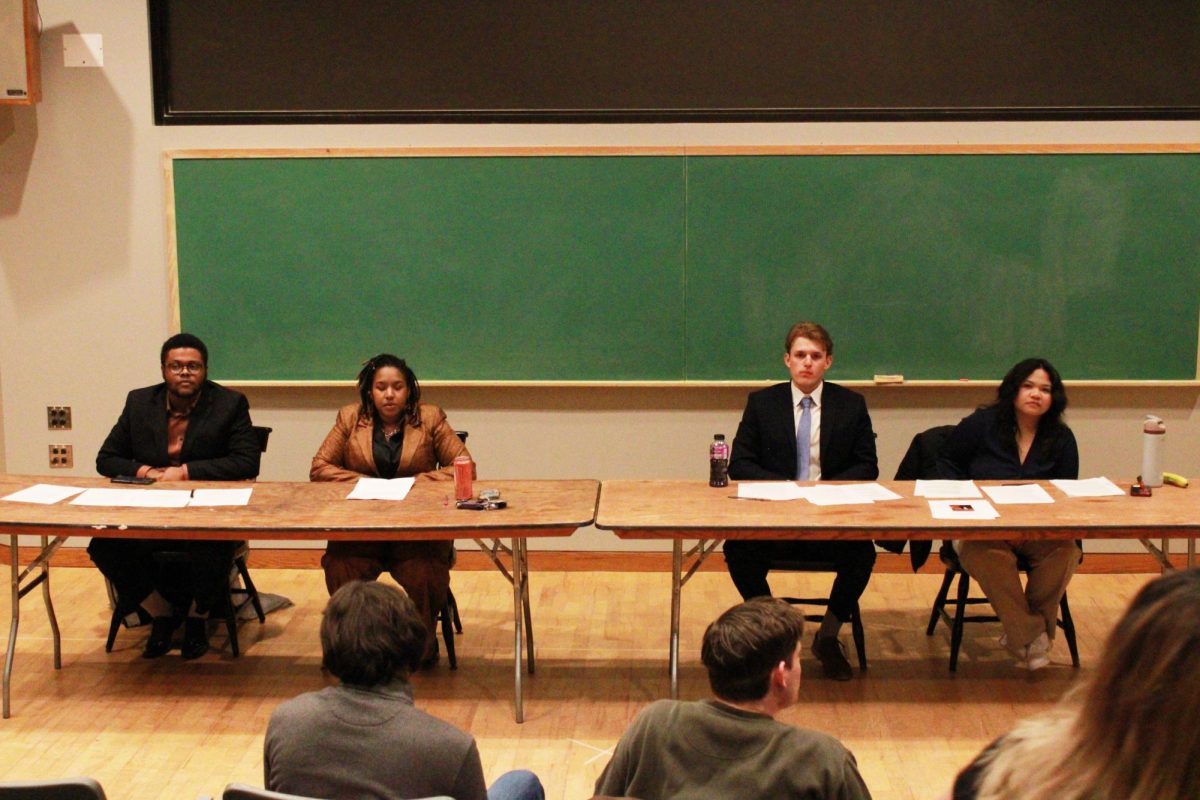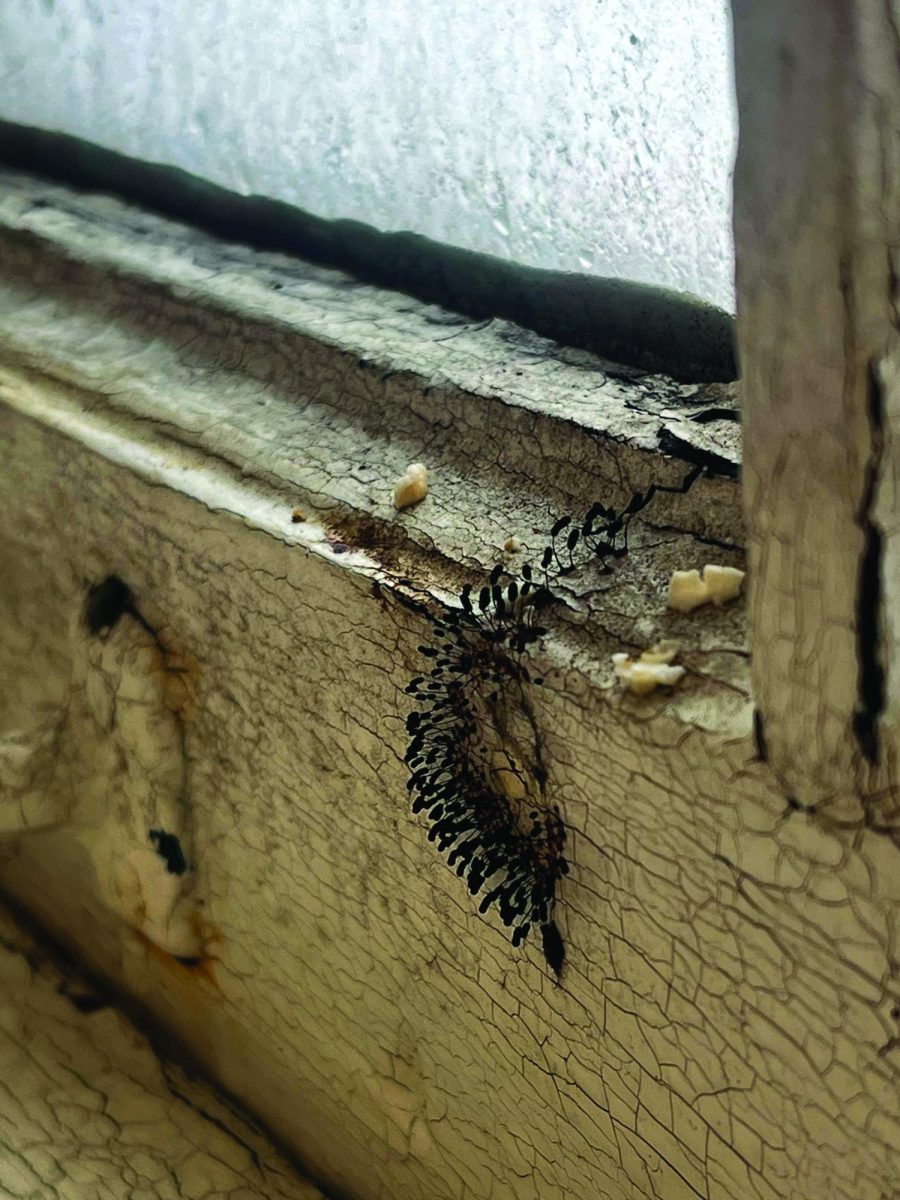History came alive at Allegheny College as a rare collection of Egyptian artifacts took center stage during the Merrick Archives’ most recent “Out Of The Vault” event, which took place on the third floor of the Lawrence Lee Pelletier Library on Feb. 18 from 4 to 5 p.m.
From ancient tablets with cuneiform writing to Greco-Roman coins, the exhibit offered visitors a rare opportunity to step back in time and explore the artistry, culture and daily life in the Nile Delta and areas of Mesopotamia.
Located behind a wall on the third floor of Bentley Hall was the collection of Egyptian artifacts found by Camden M. Cobern, a graduate of Allegheny College in 1876 with a bachelor’s degree in divinity.
Cobern earned a Ph.D. from Boston University in 1889, became a Methodist minister, taught divinity on Allegheny’s campus for over a decade and held the James Mills Thoburn Chair of Religious Studies for many years.
“He [Cobern] was also a member of the Egypt Exploration Society, which is a British Institution founded in 1882 and currently still exists,” said Daphne Womack, ’27, the student archival assistant for the Merrick Archives and the event. “He went on several digs for them. Unfortunately, we don’t have any of the dates for any of his excavational work, but we know that he did go on several digs in Egypt and the surrounding area.”
Egypt Exploration Society is a nonprofit organization that focuses on excavating areas in Egypt and Sudan and publishing analyzed results of excavations for the scholarly world. According to Cobern’s obituary, while working with the EES, he made over seven trips abroad to help with excavations and wrote many books on the subject of Egyptology.
The majority of the Cobern collection is clay or rock tablets and pieces, dated to early 2000s BCE, that have cuneiform writing on them which is the oldest form of written language known today.
“Cuneiform is a logo-syllabic writing system [mainly phonetic and logographic], so it is less of a language in and of itself as a writing language,” Womack said. “The major languages that use cuneiform are Akkadian and Sumerian. I believe the majority of our artifacts are Sumerian, but unfortunately, we are not completely sure of that.”
Originally, the language was used for receipts and ledgers. This was how written language developed and was made. The collection itself used to be much larger, though much of it was divided up over time or lost. Currently, Allegheny College has six boxes of artifacts, while another part of the collection is permanently on loan to the Crawford County Historical Society as of 2018.
Two of the cuneiform artifacts have been translated: One is an Akkadian myth telling the story of the city of Ur, referred to in the Old Testament in the Bible, and the other is a receipt for the purchase of a goat. One box includes Greco-Roman coinage dating back to between 300 and 100 BCE with the majority having Arabic script.
“It [the receipt] was a list of how much money of whose was owed to who. It doesn’t speak to a bigger story of that particular year or the company or the workers,” said Chris Anderson, the Archives and Special Collections librarian at Allegheny College. “It speaks to the day-to-day. That in and of itself is interesting.”
The Merrick Archives opened in 2001 and was founded by Ruth Andel, ’85, who was the head archivist until she retired in May of 2024. Currently, the Merrick Archives is made up of several different collections, but one of the most important is Special Collections.
“Special Collections was the collecting entity that existed at Allegheny before Merrick Archives was founded in 2001. So things like the collection we’re talking about today, the Coburn Collection, is part of Special Collections,” Womack said. “Special Collections was a separate entity from Merrick up until a few years ago.”
Jane Westenfield was the Special Collections librarian before Doug Anderson took over when she retired. While both on staff, Westenfield and Andel combined the long-time Special Collections work with the fairly recent Merrick Archives work.
Many significant items are housed in the Archives, but there are distinctions to this: personal significance, Allegheny’s significance and the general public’s significance. One of the more valuable collections in the Merrick Archives is the illuminated manuscript collection donated by Charles Albertson.
More significant to Allegheny, the Merrick Archives houses the 1823 collection which holds all of the surviving books from Allegheny’s original library. Once housed in Bentley and then moved to Reis, the collection now permanently resides in the Lawrence Lee Pelletier Library.
“One thing in particular that is significant to the university and college archive side is The Campus Newspaper. We have that going back to 1876,” Anderson said. “We’re coming up on 150 years, but what we find and how we use The Campus here in the Archive, it really speaks to how Allegheny’s community can use that great long-time student journalism piece vehicle.”
The Archives also records students and their studies. A ledger that goes back to the founding of the college features lists of students and how long they attended, what they studied and in some cases their major.
“If we find an alum like Cobern, we can open the book and there are the classes he took back in 1875-76,” Anderson said.
There is a large amount of biographical information about Cobern, including his obituary written in a copy of The Campus from May 1920 which describes his funeral, which was held in Ford Chapel.
“I think that it speaks a lot to his impact on the student body at the time,” Womack said, “and highlights the figure that he was on campus.”
There is also documentation of an appraisal done on the collection which shows the dichotomy between monetary value versus social and historical value. Womack explained the collection itself is not worth much money, but it is amazing that the Merrick Archives offers access to material like this to students and the community.
“These artifacts aren’t necessarily important, historically relevant pieces. They don’t change anything about our understanding of the time period, of the people who may have touched or made these artifacts,” Womack said, “but I do think that it’s extremely important in the smaller sense because cuneiform writing is the earliest form of writing in the world, and we have an example of the two uses of the writing.”
Cobern worked in archeology during the late 1800s to early 1900s in a period known as “Egyptomania” when a lot of people were interested in archeology in Egypt, especially the British Empire. He was not a large player in the industry, and his work shows just how popular archaeology was at the time.
“I am an undergraduate student, and I do not think that I understand the ethics of us having these artifacts well enough to be speaking on it publicly,” Womack said. “However, I do think that it is important to acknowledge that Camden Cobern was a white American man doing work in a British society to do excavational work in Egypt. And I do think that we need to acknowledge and think about the dynamics of his work, especially as a minister.”
On Monday, Feb. 24 at 3 p.m., the Merrick Archives held the “Black Box – Out Of The Vault” event, showcasing material tying into Black History Month and the Meadville community at large. Anderson looked into the history of the Association of Black Collegians which is now the Advancement of Black Culture.
There will be another “Out Of The Vault” event in March 2025 detailing the Merrick Archives collection of Civil War letters, which will be led by archival intern, Owen Ranus, ’27.
The Merrick Archives are open weekdays from 9 a.m. to 4 p.m., and there is a doorbell outside in case the door is locked.
“We welcome appointments and of course, we can help with school projects, senior projects. The faculty want us to come to their classes,” Anderson said. “We want people — students, faculty and community members — to come in and explore!”
Categories:
Out Of The Vault: Ancient Egypt at Allegheny
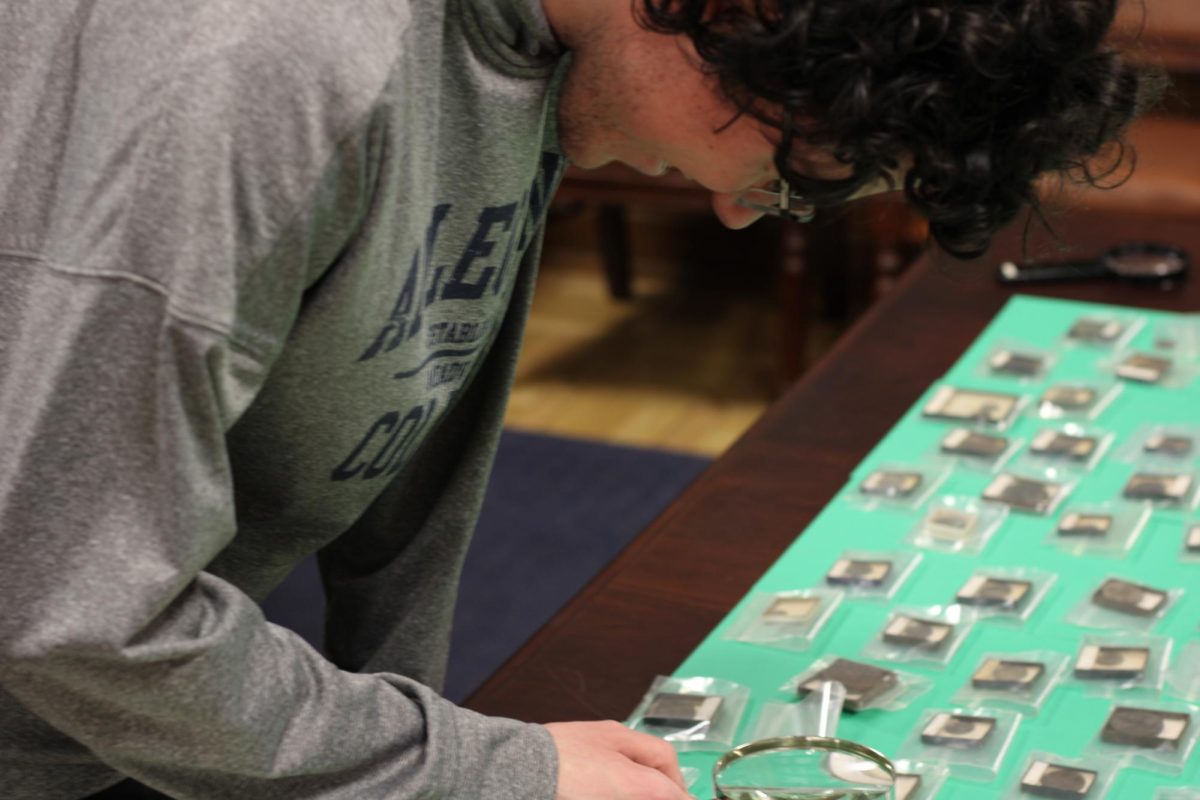
Gallery • 6 Photos
Story continues below advertisement
2
More to Discover
About the Contributor
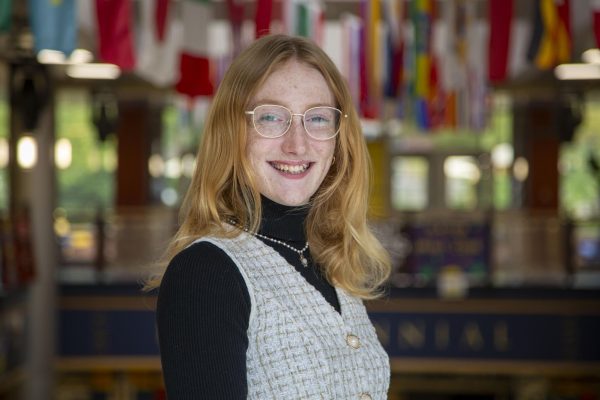
Kat Pointer, Staff Writer
“Katherine (Kat) Pointer is a senior, graduating in May 2025. Majoring in Business and minoring in Creative Writing, this is her first year as a Staff Writer. When not writing for The Campus, you can find her writing poetry and prose, or outside with a good book. Kat has had her poetry published in Allegheny’s Overkill magazine and her fiction published in The Allegheny Review.





